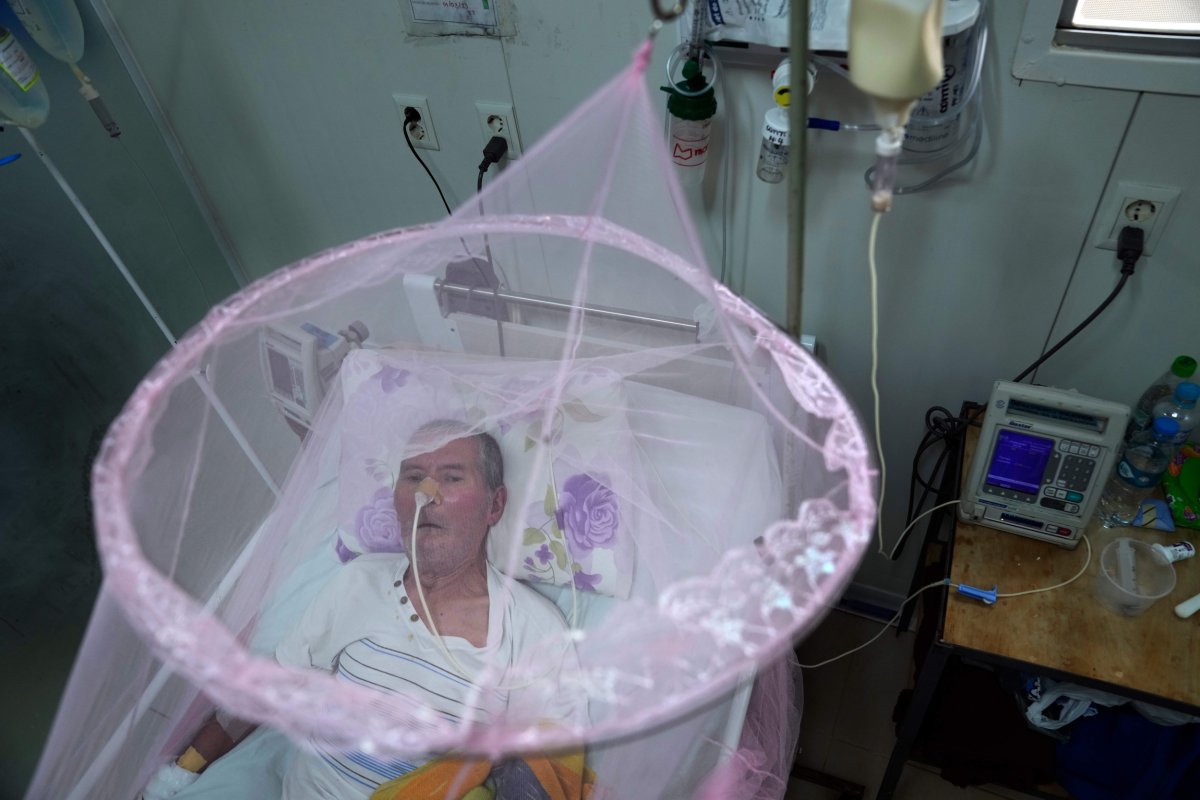Our Terms & Conditions | Our Privacy Policy
What Is Chikungunya? CDC Issues Disease Vaccine Notice to Older Travelers
The U.S. government is advising travelers aged 60 and older to hold off on receiving the chikungunya vaccine as federal health agencies investigate potential side effects.
The Centers for Disease Control and Prevention (CDC) and the Food and Drug Administration (FDA) issued advisories late last week regarding the vaccine Ixchiq, developed by Valneva.
Chikungunya is a mosquito-borne tropical disease that causes intense joint pain and fever. Although it is rare in the U.S., about 100 to 200 cases are reported annually, mostly among Americans returning from international travel.
The CDC began recommending Ixchiq last year for adults traveling to countries where chikungunya is common. The vaccine uses a live, weakened form of the virus to trigger immunity. However, new concerns have emerged after six individuals aged 65 and older—most with preexisting health conditions—developed serious neurological or cardiac symptoms within a week of being vaccinated. Over a dozen similar cases have been reported internationally, prompting further scrutiny.

A patient infected with chikungunya looks out from mosquito netting at the Clinicas Hospital in San Lorenzo, Paraguay, Friday, March 3, 2023.
A patient infected with chikungunya looks out from mosquito netting at the Clinicas Hospital in San Lorenzo, Paraguay, Friday, March 3, 2023.
Associated Press
As a result, an expert advisory panel to the CDC has recommended a precautionary warning for adults 65 and older. European health regulators are also reviewing safety data related to the vaccine.
In light of the concerns, the advisory group also recommended authorizing a second chikungunya vaccine—Vimkunya, produced by Bavarian Nordic—for travelers aged 12 and older visiting areas experiencing outbreaks. The CDC has not yet confirmed whether it will adopt this recommendation.
Where is Chikungunya Transmitted?
Chikungunya is primarily contracted in tropical and subtropical regions where the Aedes aegypti and Aedes albopictus mosquitoes—also known for spreading dengue and Zika viruses—are commonly found. The virus is endemic in parts of Africa, particularly Central and West Africa, including countries like Nigeria, Senegal, Kenya, and the Democratic Republic of the Congo. In Asia, widespread transmission has occurred in countries such as India, Sri Lanka, Thailand, Indonesia, Myanmar, and the Philippines.
In the Americas, chikungunya has caused significant outbreaks in the Caribbean (including Puerto Rico, the Dominican Republic, and Haiti), as well as in Central and South America, with notable activity in Brazil, Colombia, Venezuela, and Honduras. Mexico has also reported numerous cases.
In the United States, there have been no sustained local outbreaks, but travel-related cases are regularly reported, especially in warmer states like Florida and Texas, where Aedes mosquitoes are present and could potentially support local transmission.
In the Pacific region, outbreaks have been recorded in places such as Fiji, Samoa, Papua New Guinea and the Solomon Islands.
Reporting by the Associated Press contributed to this article.
Update: 5/12/25, 5:13 p.m. ET: This article has been updated with additional information.
[ad_1]
Images are for reference only.Images and contents gathered automatic from google or 3rd party sources.All rights on the images and contents are with their legal original owners.
[ad_2]



Comments are closed.